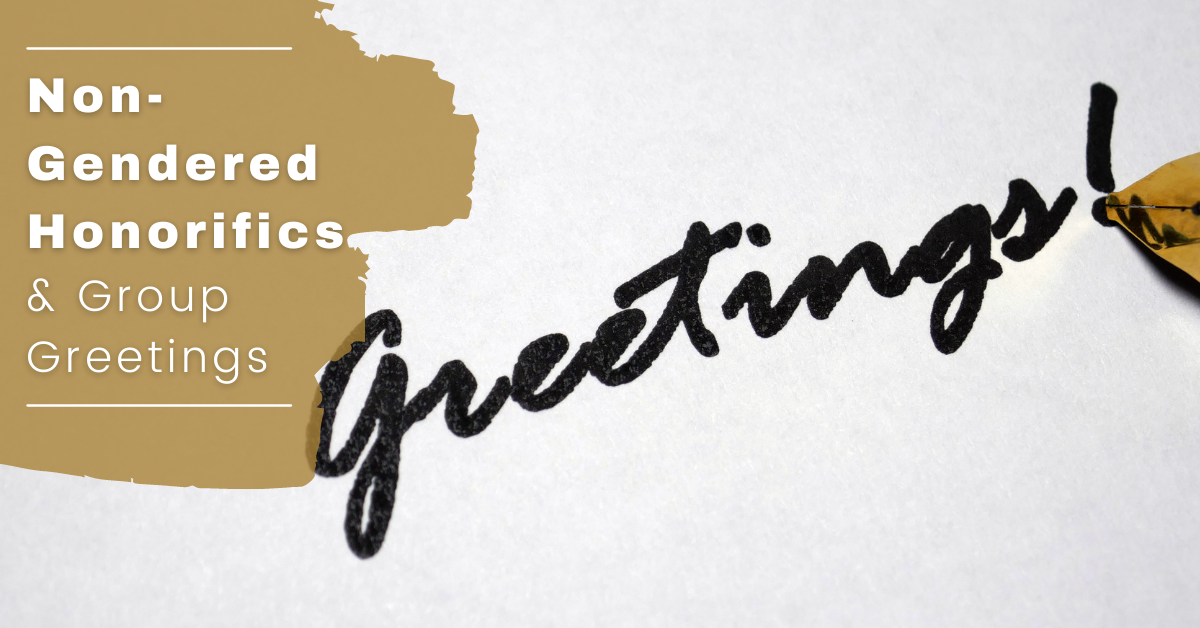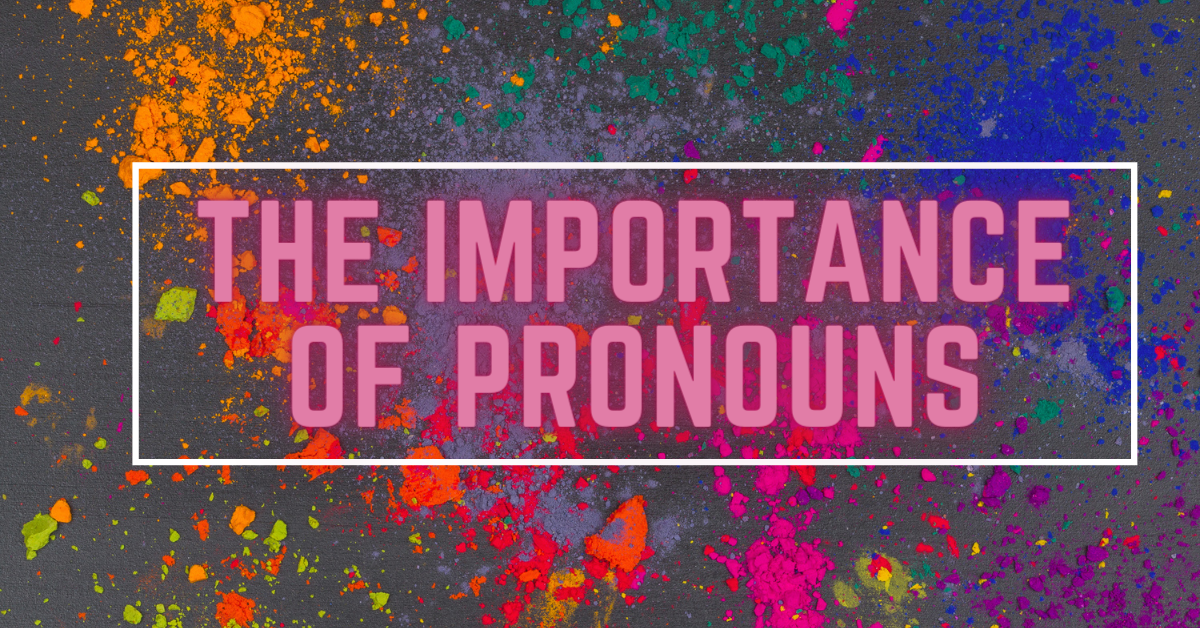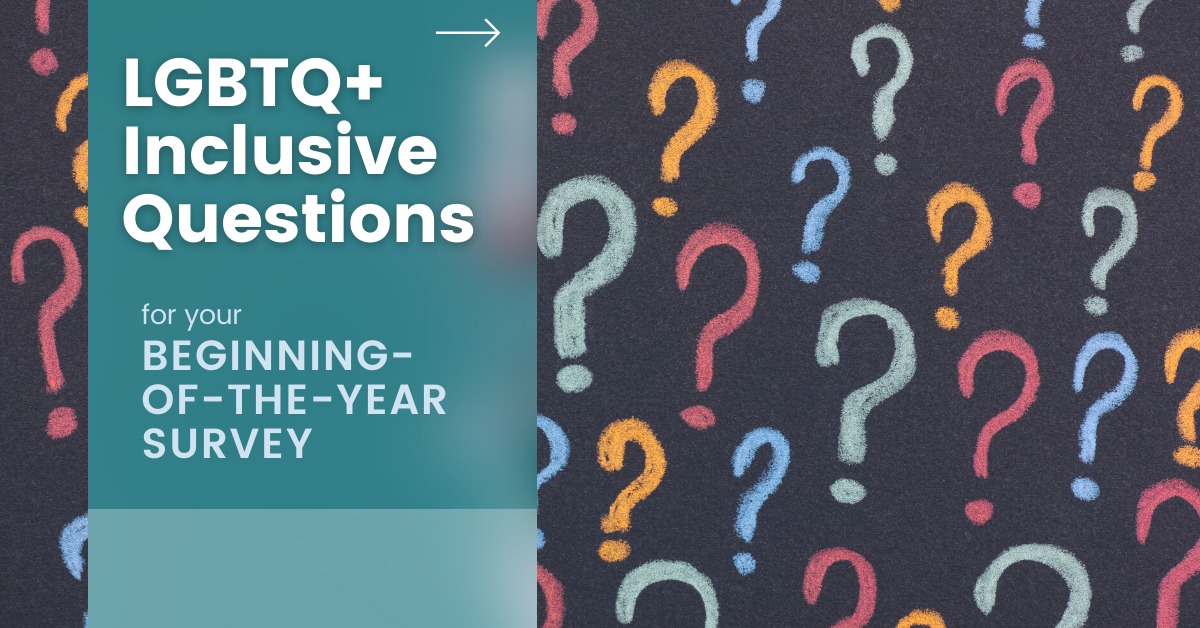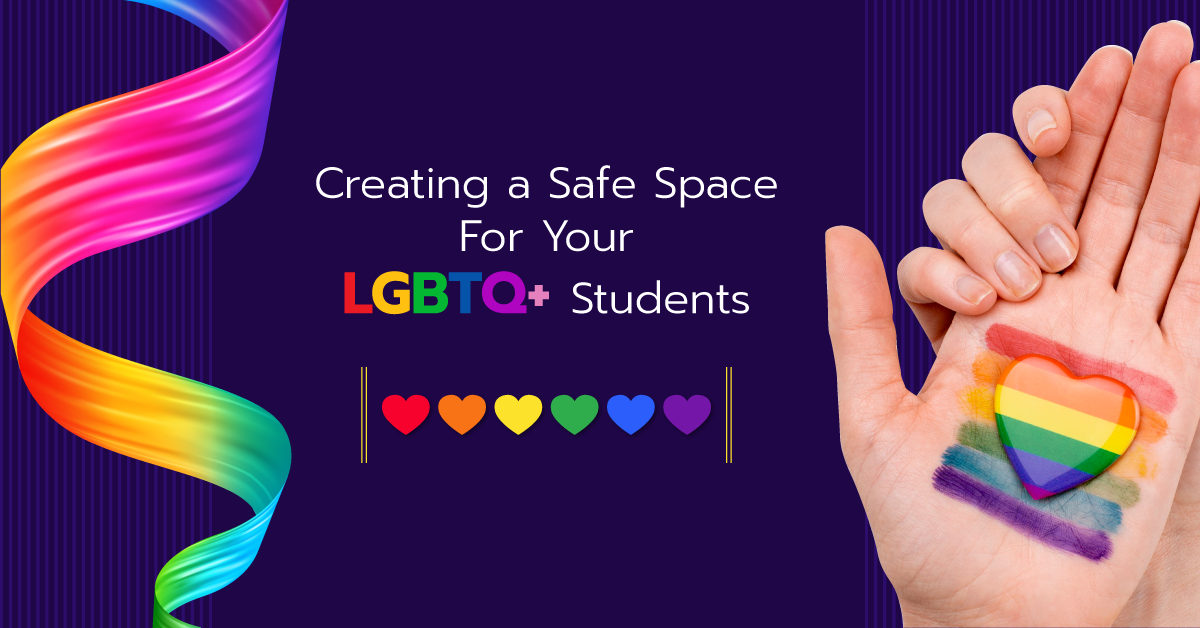Non-Gendered Honorifics & Group Greetings
The Theatrefolk 2021–2022 Equity, Diversity & Inclusion Advisory Panel shares its thoughts on non-gendered honorifics and group greetings.
“Every time I addressed a group I was directing, I always used “guys and gals.” It was gently brought to my attention a couple of years ago that I needed to be more inclusive and from their suggestions, I now use “guys, gals, and non-binary pals.” In a recent production there was a student who previously I had clashed quite a bit with for a variety of reasons. When they heard, “guy, gals, and non-binary pals,” it was like night and day. I learned that they were transitioning and this made all the difference in feeling included in the group.” ~Matt Webster
How often do you address your audience as “ladies and gentlemen”? Or ask someone if they are a Ms. or Mrs.? Or say to a group, “Hey guys”?
These are honorifics and group greetings that people have been using for a long time. But there is more expansive and inclusive language available. There are and always have been non-binary, transgender, or gender non-conforming individuals in your class or audience, and it is our responsibility to foster an inclusive environment.
It’s easy to take language and word choice for granted, especially when they’re words you’ve always used, your parents and grandparents have always used, and so on. But if you want your classroom to be an inclusive place for all students, being purposeful about what you say when you address others is a great place to start.
Here is a list of non-gendered honorifics and group greetings (for addressing your class as a group, or your audience before a show). These are not the only possibilities and there may be some on the list you don’t like. Do your own research to find something that works for your situation. Ask your students for suggestions or feedback on your choices. Try some out and observe the response. If you’ve never spoken any other way, it will take effort to be inclusive, but it’s worth it.
Teacher and last name (Teacher Smith)
My Liege
My Excellence
Coach
Citizen
Mx, Misc, Myr
Y’all
Folks
Folx
Future leaders of the world
Friends
Family and friends
Artists and actors
Scholars
Students
Esteemed guests
Company
Welcome everyone
Humans
My people
Fam
Disclaimer: Check with your administration and district policy about anything discussed in this article with regard to LGBTQ+ (LGBTQIA, LGBTQ2S), as laws vary from region to region.
Terminology:
L = Lesbian. Women sexually/romantically attracted to women.
G = Gay. Men sexually/romantically attracted to men.
B = Bisexual. People sexually/romantically attracted to their own and other genders.
T = Transgender. People whose gender identity differs from the sex they were assigned at birth.
Q = Queer/Questioning. An umbrella term with a variety of meanings. Used by some individuals who don’t identify as straight or cisgender and do not conform to traditional society norms with regard to gender and sexuality, or who are questioning their sexuality or identity.
I = Intersex. An umbrella term. A person born with sex characteristics that do not fit binary definitions of male and female.
A = Asexual. People who feel little to no sexual attraction to others.
2S = Two-Spirit. An umbrella term used by some Indigenous people who identify as having both a male and female spirit.



